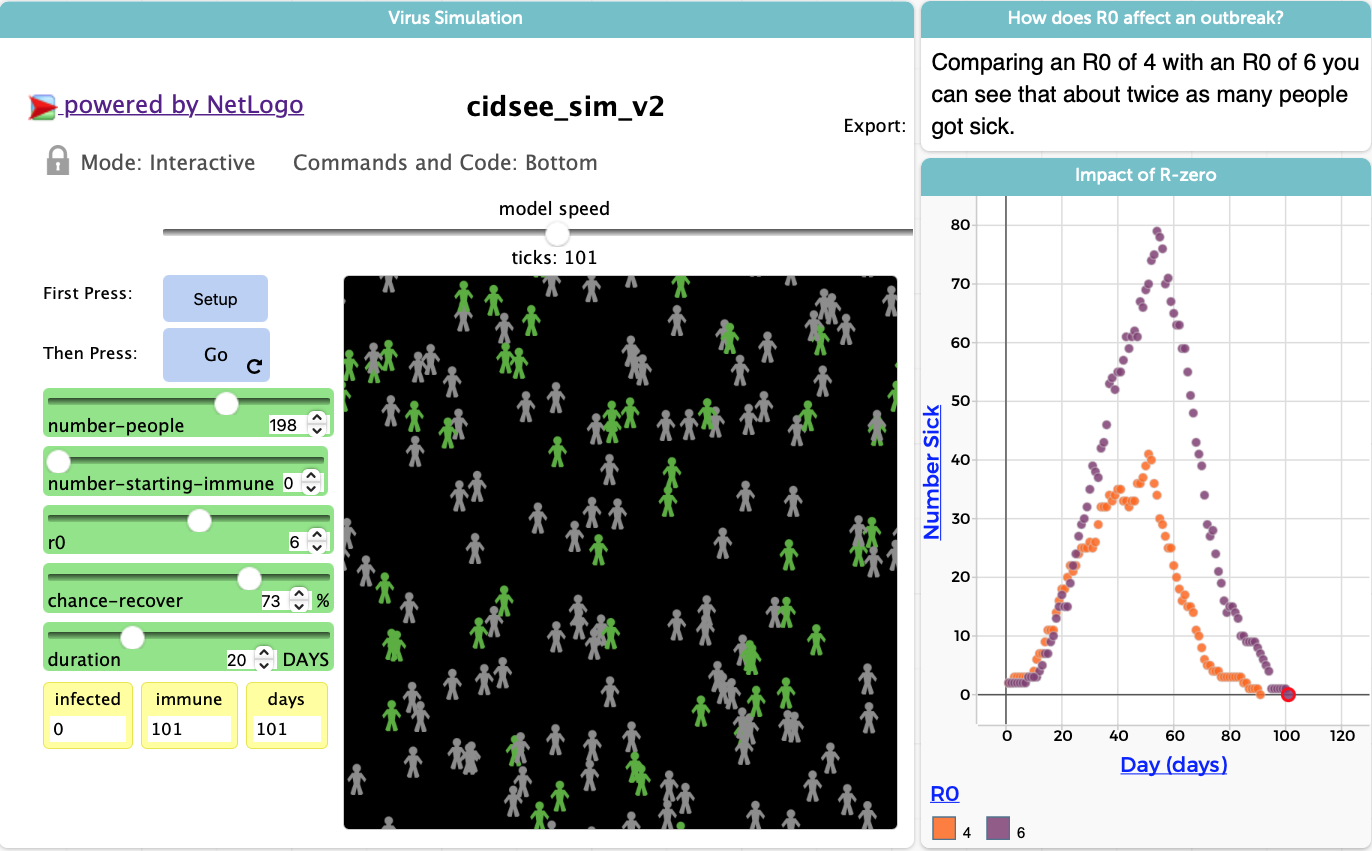The ongoing COVID-19 pandemic is providing an unprecedented amount of health and social science data, and serves as a compelling starting point to engage in data science activities. A new project funded by the Innovative Technology Experiences for Students and Teachers (ITEST) program at the National Science Foundation is designed to empower young people to understand data science through epidemiology. The COVID-Inspired Data Science Education Through Epidemiology project partners include Science Education Solutions, Tumblehome, STEM Next/Imagine Science, Strategic Learning Partners for Innovation, Jackson Laboratory, Partnerships in Education and Resilience, and the Concord Consortium.
The project engages 400 underserved youth across the country in “Data Detective Clubs” that meet in person or online. Fifteen hours of out-of-school activities are based on The Case of the COVID Crisis, a young adult adventure novel by former Concord Consortium board member Pendred (Penny) Noyce. A medical doctor, educator, and writer, she has helped improve science education nationwide through her work at the Noyce Foundation, established in honor of her father, Robert Noyce, co-inventor of the integrated circuit and co-founder of Intel. She later transitioned to writing middle-grade novels. Noyce is the Co-Principal Investigator of the new project.

The Case of the COVID Crisis book cover image used with permission of Tumblehome.
The Case of the COVID Crisis follows two curious and determined middle school students, Clinton and Mae, on a time-travel adventure guided by a teenage mentor from the future. They visit epidemics of the past and present, including measles, smallpox, Nipah, the 1918 flu, Ebola, and COVID, and travel to the Congo, Bangladesh, Taiwan, Pittsburgh, and Navajo country. While the topic is the spread of disease, the narrative shares historical facts that abound with the power of science—and data science—and the hope for cures.
The project will expand the scope of the book and include podcasts of the characters discussing data, followed by activities designed to explore real datasets using our Common Online Data Analysis Platform (CODAP). Students will also watch animations about viruses, vaccines, and clinical trials.

Students use a simulation of a viral outbreak to understand the ways various parameters influence the spread of a virus.
Lead CODAP developer and Co-Principal Investigator Bill Finzer says, “I can’t wait to see the data discoveries these young detectives will certainly find. My hope is that the data inspire them to learn more about their world, including epidemiology, and how they can work toward solutions together now and in the future.”
The ITEST program supports projects that contribute to increasing students’ knowledge and interest in science, technology, engineering, and mathematics (STEM) and information and communication technology (ICT) careers. In order to encourage youth interest in the myriad careers of the data-rich discipline of epidemiology, the project provides opportunities for students to meet data scientists, researchers, and/or local epidemiologists either in person or virtually.
Principal Investigator Jan Mokros is a Senior Researcher at Science Education Solutions, where she leads another National Science Foundation-funded project called Data Clubs for Middle School Youth, which has already established data clubs in rural and urban afterschool settings. Mokros notes, “Since children spend so much time out of school, data clubs offer a promising space to explore new activities that inspire youth to see data science and math as exciting and collaborative endeavors where they can excel. This new project includes an exploration of epidemiology centered around an engaging narrative.”
Project research studies how youth use datasets and data tools to ask epidemiological questions, examine patterns, and make predictions; explores how youth become motivated to engage in work at the intersection of data science and epidemiology; and examines the affordances of data clubs that integrate narrative, inquiry-based data activities, accessible data tools, animations, and career exploration.